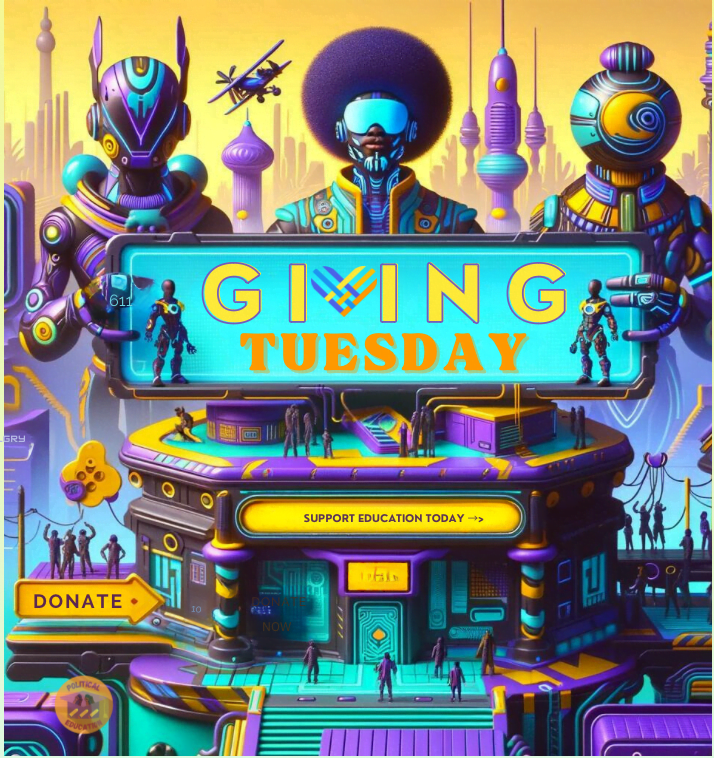
A Reality for Those Living in a White-Dominant Society
The normalization of oppression in Black communities, perpetuated by systemic and structural inequalities, internalized racism, and societal expectations, hinders collective progress and empowerment; thus, identifying and challenging these entrenched patterns is critical to dismantling barriers and fostering true equity and justice for Black people worldwide.
Oppression is a complex and multifaceted phenomenon that affects marginalized communities worldwide. Black communities, in particular, have experienced various forms of systemic oppression throughout history. As a Black person living within an imperialistic white-dominant society, I recognize the insidious normalization of oppression within my community. This article examines the ways in which oppression becomes normalized in Black communities, how it presents itself today, and potential strategies for recognizing and challenging these harmful norms.
Socialization and Cultural Conditioning — Encouraging Resistance in a World That Insists on Submission
Oppression is often perpetuated through cultural norms and social conditioning that maintain existing power structures (1); as a Black person in America, I have witnessed firsthand how these processes can make it difficult for my community to recognize and challenge oppressive norms. Malcolm X once said, “If you’re not careful, the newspapers will have you hating the people who are being oppressed, and loving the people who are doing the oppressing.” This quote underscores the importance of questioning the narratives and norms that surround us, as they can often perpetuate systemic oppression and create barriers for change.
Malcolm X’s statement regarding the media’s portrayal of the oppressed and the oppressors can be seen in the coverage of protests against police brutality and racial injustice. Often, mainstream media outlets focus on instances of looting and property damage, rather than the core issues and systemic injustices that motivate protesters to take to the streets. This skewed coverage can lead to public opinion turning against the protesters, who are fighting against oppression, and instead garnering sympathy for law enforcement or property owners, who may be complicit in perpetuating oppressive systems.
The mainstream media perpetuates narratives that conveniently paint Black individuals as the problem and distracts from the root causes of systemic racism. These twisted portrayals distort the reality of Black experiences and make it challenging for the broader public to empathize with the ongoing struggles of our community. But we won’t be silenced or sidelined any longer. By fiercely questioning and relentlessly challenging these oppressive narratives, we can expose the insidious nature of racial injustice and tear down the structures that perpetuate it. It’s time to break free from these toxic chains and demand a society that values and respects every Black life.
Internalized Racism — A Personal Struggle Against a System that Constantly Devalues My Identity

For countless Black people, the relentless bombardment of racial discrimination and prejudice fuels internalized racism — the twisted belief that our marginalized status is somehow deserved or natural (2). This toxic mindset breeds self-doubt, low self-esteem, and an unwillingness to defy the status quo. As Audre Lorde, a fearless civil rights activist, once declared, “If I didn’t define myself for myself, I would be crunched into other people’s fantasies for me and eaten alive” (Lorde, Sister Outsider). This unapologetic statement underlines the critical necessity of self-definition and the fierce resistance to the internalization of racism in the shadow of a suffocating system of oppression.
Although these systems of oppressions nearly cripples our communities, our natural resistance to these systems has not subsided. An example of Black people combating internalized racism is the audacious “Black Lives Matter” movement. This revolutionary movement challenges the systemic devaluation of Black lives and empowers Black communities by loudly proclaiming that Black people are invaluable and unequivocally deserving of equal rights and opportunities. However, internalized racism has led some Black individuals to view the Black Lives Matter movement with skepticism or even disdain, as they may have unconsciously adopted the dominant society’s negative perceptions of Black people.
Additionally, mainstream media has often portrayed the movement in a negative light, focusing on isolated incidents of violence rather than the broader message of justice and equality. This biased representation serves to uphold systemic racism and further entrench internalized racism within Black communities.
By demanding systemic change and forging spaces for Black people to voice their experiences and assert their identities, the Black Lives Matter movement actively combats internalized racism and dismantles the oppressive systems that perpetuate this psychological warfare. It is crucial for our communities to recognize and reject internalized racism, and instead, embrace the powerful call for justice and equality that movements like Black Lives Matter represent.
Economic Disadvantage — Struggling Against a Rigged System that Thrives on Inequality

The crushing weight of economic inequality and restricted access to resources fuels the normalization of oppression, leaving Black individuals feeling shackled and powerless to challenge the rigged systems and structures that perpetuate their disadvantage (3). As Fannie Lou Hamer once proclaimed, “Nobody’s free until everybody’s free” (Hamer, Speech at Williams Institutional CME Church). This urgent call to action emphasizes that dismantling economic disparities is essential to our collective liberation.
Furthermore, as James Baldwin passionately declared, “Anyone who has ever struggled with poverty knows how extremely expensive it is to be poor” (Baldwin, Nobody Knows My Name). His statement highlights the bitter irony of economic inequality that keeps many Black communities trapped in an endless cycle of poverty.
Today, the abhorrent racial wealth gap yawns wider than ever, with Black families barely grasping a sliver of the riches white families enjoy. The sinister legacy of redlining, prejudiced lending practices, and a relentless history of systemic racism has left our communities gasping for breath, suffocated by the crushing weight of inequality. Many of us feel like we’re fighting a desperate battle, struggling to stay afloat in a sea of injustice.
It’s time we ignite the flames of resistance and storm the citadels of power, tearing down the oppressive barriers that have long stifled our potential and dismantling the malicious structures that have gorged themselves on our subjugation. We will no longer be silenced or held back. The hour has come for us to rise up, shatter the chains that bind us, and seize control of our destiny.

Strategies for Challenging the Normalization of Oppression in Black Communities: Empowering Ourselves and Breaking the Cycle
Oppression doesn’t disappear on its own, it lingers and festers until it becomes an accepted part of society. But Black communities have had enough of this sickening normalcy. We will not sit idly by and allow our oppressors to continue to thrive in their comfort. As activist Angela Davis said, “I am no longer accepting the things I cannot change. I am changing the things I cannot accept” (Davis). By recognizing and dismantling the inherent advantages that come with white privilege, we can work towards a society where all individuals have equal access to opportunities and resources.
We must engage in advocacy and community organizing, taking an active position in dismantling these oppressive norms and shattering the cycle of normalized oppression. By understanding the ways oppression becomes normalized and implementing strategies to challenge these harmful norms, our communities can work towards positive change.
Education is crucial in this fight, with efforts to ensure that Black history and contributions are properly recognized and taught in schools. One powerful tool for achieving this is the creation and expansion of more Freedom Schools. These schools, first established during the Civil Rights Movement, provide Black students with the education and resources they need to combat systemic racism and oppression. By offering culturally relevant curriculum, critical thinking skills, and community engagement opportunities, Freedom Schools can help bridge the gap between the systemic disadvantages faced by Black people and the opportunities necessary for liberation.
In addition to Freedom Schools, community engagement and advocacy are essential in the fight against oppression. Awareness campaigns can also help to shift cultural norms, promoting allyship and encouraging individuals to challenge their own biases and assumptions. This includes supporting Black-owned businesses and institutions, amplifying Black voices through media representation, and advocating for policy changes that promote equity and justice. Engaging in advocacy and community organizing is also essential, pushing for policy changes and supporting initiatives that promote equity and justice. By taking action on multiple fronts, we can break the cycle of normalized oppression and create lasting change.
As a Black person living in an imperialistic white-dominant society, I acknowledge the normalization of oppression within my community as a complex and pervasive issue that must be recognized and addressed. By understanding the ways in which oppression becomes normalized and implementing strategies to challenge these harmful norms, we can work towards real change. It’s time for us to take control of our own destiny and fight for the justice and equality we deserve. Black communities have had enough of the normalcy of oppression. We will not stand by and let our oppressors thrive. We will fight back by empowering ourselves and our communities through education, advocacy, and community organizing, we can dismantle the structures of oppression and create a more unbiased society. It is our duty to ourselves and future generations to break the cycle of normalized oppression and achieve true freedom. A more equitable and inclusive society is not a pipe dream; it’s an attainable reality that we will fight for until the very end.
Sources
- Bonilla-Silva, E. (2017). “Racism without Racists: Color-Blind Racism and the Persistence of Racial Inequality in America.” Rowman & Littlefield.
- Pyke, K. D. (2010). “What is Internalized Racial Oppression and Why Don’t We Study it? Acknowledging Racism’s Hidden Injuries.” Sociological Forum, 25(1), 102–126.
- Pager, D., & Shepherd, H. (2008). “The Sociology of Discrimination: Racial Discrimination in Employment, Housing, Credit, and Consumer Markets.” Annual Review of Sociology, 34, 181–209.
Related Posts
September 30th, 1919 | A History of Racial Injustice
On this day, enraged white mobs began a massacre of


